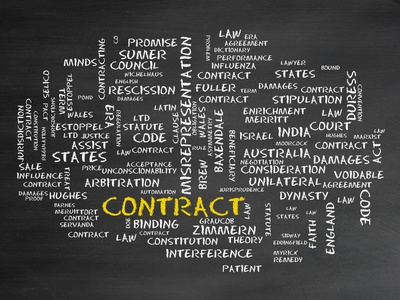
Post 5. Contract Glossary of Terms: Promissory Estoppel Explained
Promissory estoppel is a special type of contract claim. Usually, when someone brings a contract claim, there was, well, a contract. That’s not always the case with promissory estoppel, aka “detrimental reliance.”
When someone brings a claim for promissory estoppel, it’s like a hail mary. It’s the last chance to some kind of relief. It’s the last chance, because if the court is applies promissory estoppel then it has already decided that none of the usual contract claims apply. There is usually some contract element missing, which is why no usual contract claim applies. There is always going to be some harm that would happen if the court refused to force one party to pay.
So, why is promissory estoppel in the same group as contract claims? Why isn’t there a contract? First, promissory estoppel is together with other contract claims because there must be some kind of promise made. The court will only apply promissory estoppel if no other contract claim is available, so it makes sense to put all the claims together. Next, what’s usually missing form the contract is consideration, some kind of “bargained-for exchange.”
The elements:
- (Claimant) gave a benefit to (defendant);
- (Defendant) knew of the benefit;
- (Defendant) accepted or retained the benefit; and
- The circumstances are such that (defendant) should, in all fairness, be required to pay for the benefit.
EXAMPLE #1
Buyer promises to buy Seller’s home for $300,000. Seller’s home was not for sale, but Buyer knew Seller needed the money. Relying on Buyer’s promise, Seller made plans to purchase a home nearby for $250,000. Seller took out a loan, executed a mortgage, and closed on his new home. Even though the agreement between Buyer and Seller may not be legally sufficient, the court will likely force Buyer to buy the home (injunctive relief).
EXAMPLE #2
Employer orally promises to increase Employee’s retirement by $100 per month. Relying on Employer’s promise, Employee stops working and starts his retirement. The court would likely force Employer to increase Employee’s retirement, because Employee relied on the promise to his detriment.





